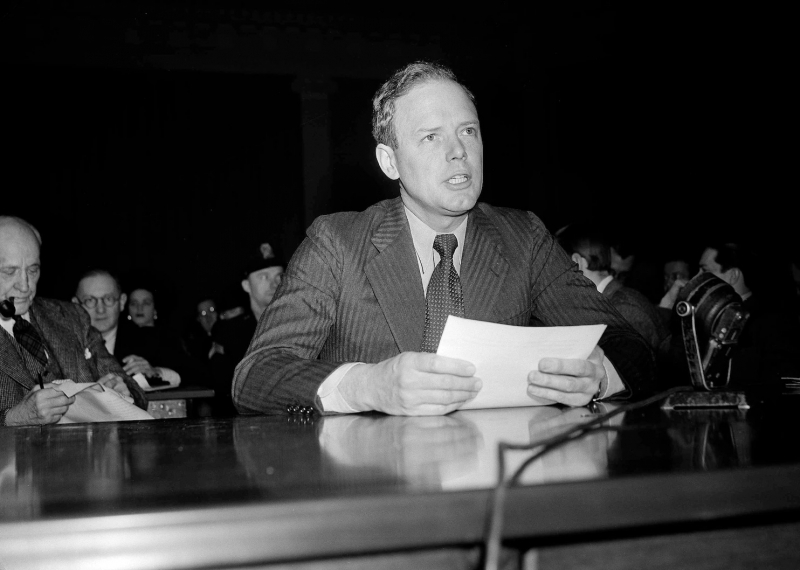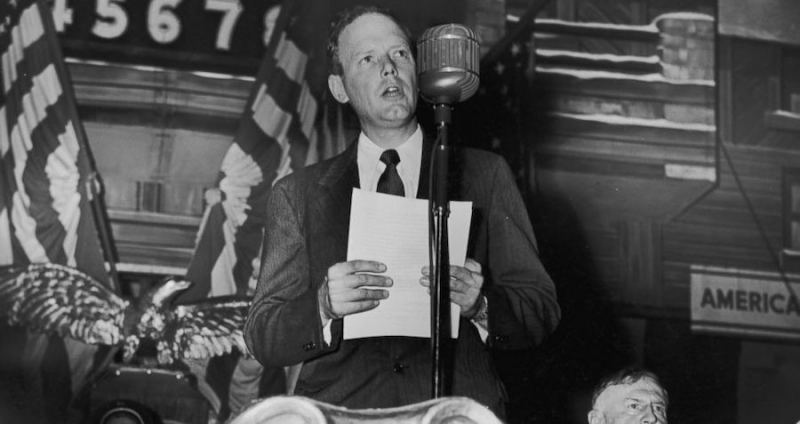He was a major opponent of U.S. involvement in WWII
Due to his opposition to World War II and his sympathy towards Nazi Germany in the late 1930s and early 1940s, Lindbergh's once reputation suffered greatly. Charles Lindbergh had visited Germany numerous times in the 1930s to examine its air force, and he returned home certain that the Luftwaffe was strong enough to dominate the rest of Europe.
He emerged as one of the most outspoken opponents of American involvement in the fight, making his case for isolationism in scores of public speeches and radio broadcasts in which he also criticized President Franklin D. Roosevelt and Jewish-owned media outlets.
Many started calling the former hero an anti-Semite and a traitor as the United States drew closer to war. After Pearl Harbor was bombed, Lindbergh gave up his cause and wanted to join the military, but President Roosevelt, who in private referred to the aviator as a Nazi, prevented him from doing so. Later, Charles Lindbergh worked as a test pilot and an aviation advisor before going to the Pacific Theater of the war as an observer. He finally flew almost 50 combat flights while being a civilian in his official capacity, even shooting down a Japanese fighter jet.












